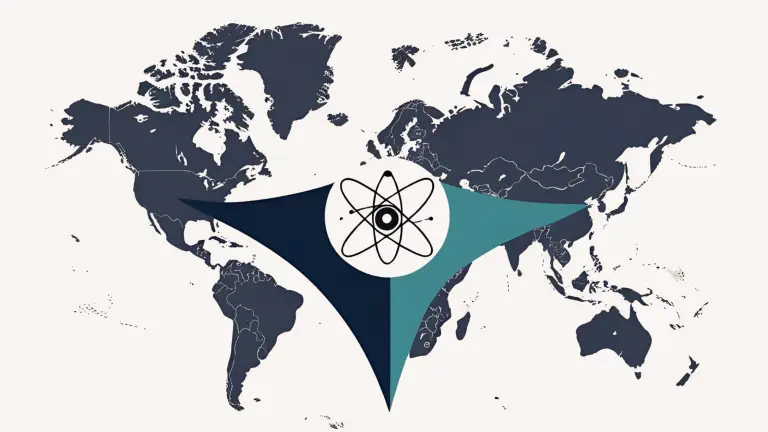Quantum sensors could help end our risky over-dependence on GPS
Defence and industrial investors are increasingly interested in using quantum sensors to go where the GPS system cannot take us.

Much of the magic of modern life depends on GPS. It guides our flights to the right destination, ensures our orders are shipped correctly, and rescues the directionally challenged among us with that invaluable blue dot on our mobile phones. In short: we are hopelessly over-reliant.
For an idea of why this could be dangerous, you only need to look at Ukraine. Since Russia’s full-scale invasion, GPS denial has become a weapon on the battlefield, cutting off aircraft and drones from their positioning systems. In fact, spamming and spoofing has started to creep outwards into other eastern European countries and the Baltic States, as the above map shows. It is so integral to the modern economy that an outage could cost the US $1bn a day, according to a Commerce Department estimate.
This has fed an interest in alternative technologies. One of the most promising of these is quantum sensing, where the peculiar properties of subatomic particles allow for a highly sensitive reading of gravity, which is used to measure speed, position and orientation — a considerably more sophisticated form of the technology that helps position a smartphone. Successful innovators in this sector could tap into a substantial market. A 2021 McKinsey report predicted that quantum sensing will generate $5bn in revenue by 2030 across several use cases, including navigation.
“Everything has become so dependent on GPS, and the assumption is that it is simply [always] available,” says Michael Biercuk, CEO of Australian startup Q-Ctrl, which has raised $113m and built a quantum sensing-based navigation system which it claims is over 100 times better than the next-best GPS alternatives.
The Ironstone Opal system uses an on-board sensor that detects miniscule changes in magnetic fields and then plots the vehicle’s position against a map of the Earth’s magnetic field using AI-powered software.
Deep tech startups like this can often struggle to move from prototype to scaled product, but Q-Ctrl is using strategic relationships with corporations to bridge this gap. It has partnered with US defence giant Lockheed Martin on several US Department of Defence contracts to make prototype quantum navigation systems based on quantum gravimetry and inertial sensing.
